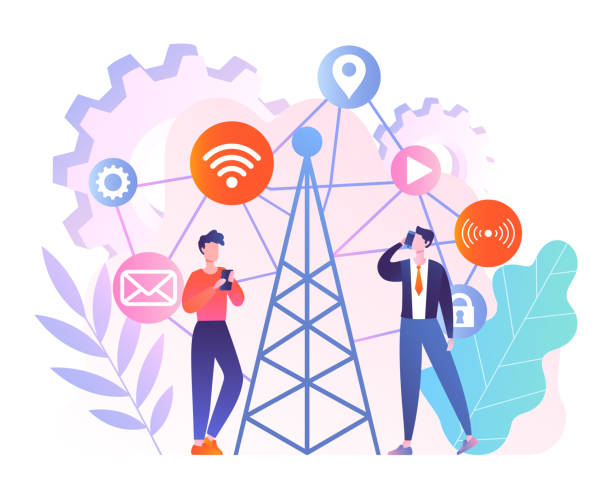The questions raised by the Internet Solidarity Law: Is it necessary or are there other options?

During the recent Andicom telecommunications fair , the appropriateness of the Internet Solidarity Bill, a proposal from the Ministry of ICT that seeks to close the digital divide by declaring internet access a fundamental right, was debated.
According to a public statement from the entity, "the initiative contemplates that households in strata 5 and 6, along with large commercial and industrial companies, contribute an additional 30 percent to their fixed Internet bills , in order to subsidize connectivity for the most vulnerable sectors."
In the words of the current Minister of ICT, Julián Molina, "Internet access should not be a luxury, but a prerequisite for social inclusion, equity, and full participation in economic, political, educational, and cultural life. With this project, we will ensure the fundamental right of all Colombians to access quality internet and thus reduce internet poverty, which in Colombia is estimated at 22 percent."
The article proposes that stratum 1 households registered with Sisbén A, with access to energy, and active students, receive a subsidy of up to 55 percent on their fixed internet bill. Additionally, "the ICT Ministry and the Communications Regulatory Commission (CRC) will define a special solidarity rate, estimated at $35,000 per month, for new stratum 1 users."
However, telecommunications industry experts question whether this is the most effective approach, suggesting that there are alternative mechanisms that could achieve the same goal without causing market distortions.
Is this Internet Solidarity Law necessary? The debate focuses on finding the most efficient way to connect millions of Colombians who remain offline. To analyze the project's implications, Samuel Hoyos, president of Asomóvil, and Lucas Gallitto, president of GSMA for Latin America , presented their perspectives in an interview with EL TIEMPO during Andicom, agreeing on the nobility of the objective but differing on the method proposed by the law.
Both experts agree that closing the digital divide should be a priority state policy. However, they warn that implementation is key and that the current bill could be a step in the wrong direction. Samuel Hoyos, of Asomóvil, believes the goal is laudable, but the discussion should focus on the effectiveness of the tools.

The "Solidarity Internet" bill establishes a lower rate for those in stratum one. Photo: iStock
"We share the goal. I think it should be a state policy to close the digital divide, but let's discuss how," said Hoyos, who argues that instead of creating a new law, existing resources, such as the Single ICT Fund (FUTIC), could be optimized.
This fund, which is supported by contributions from telecommunications companies, receives nearly 2 billion pesos annually. "What we've said is that there's a vehicle that's already been created, and what we need is the will to ensure that the resources there are targeted and allocated as a priority to bringing connectivity to the poorest households," explained the president of Asomóvil, suggesting that this approach would not involve increasing user rates.
For his part, Lucas Gallitto of the GSMA noted that the discussion is not about "good or bad," but rather about economic incentives. He argues that public policies need to be adapted to the current reality of the digital ecosystem. One of the key points of his analysis is the concept of "Fair Share."
Gallitto argues that large over-the-top (OTT) content platforms, such as Netflix, Google, Disney, Facebook, YouTube, Meta, and others, which generate the majority of traffic on social networks, should also contribute to maintaining and expanding the infrastructure.

The "Solidarity Internet" bill establishes a lower rate for those in stratum one. Photo: iStock
"They have no incentive to use connectivity efficiently," he said, using the analogy of someone at home leaving the lights on because they don't pay the electricity bill. According to studies cited by Gallitto, up to 30 percent of the traffic generated by these platforms is unsolicited by the user, such as advertising or video streaming at a higher quality than the device can play.
Meanwhile, Samuel Hoyos believes it is essential that "other actors in the digital ecosystem who use the telecommunications infrastructure and do not contribute to its growth do so."
Legal security for ICTs Another sticking point in the bill is the proposal to return to a residential public services system for internet, a model that, according to Samuel Hoyos, represents a setback. “Returning to the residential public services system, where we were a few years ago, is a step backward. The institutional framework we have built, that of having technical and independent regulators, has worked,” and this has allowed us to attract billions of dollars in investment needed to close the digital connectivity gap.
GSMA's Gallitto complements this idea by highlighting the successful case of Brazil, where radio spectrum auctions were used not only to raise funds but also to impose "obligations to act," meaning that winning companies committed to deploying infrastructure in unconnected areas as part of the payment.
"Brazil allocated a very high percentage of the spectrum value to deploy networks in areas where the neediest people require internet access. This is a model of public-private collaboration that could be replicated here," he said.
On the other hand, the financial formula for calculating the internet subsidy for the poorest suffers from uncontrollable situations. Unlike the monopoly on electricity, water, or gas, where users cannot switch companies for better rates, as is the case in telecommunications, billing accounts and, therefore, subsidy collection would not be unique but variable, affecting the efficiency and achievement of the goal of providing internet access to the poorest every month.
Furthermore, the fact that the bill only contemplates fixed connections, not mobile ones, is considered another aspect that would complicate its efficiency and discourage investment in fixed networks in Colombia.
eltiempo





